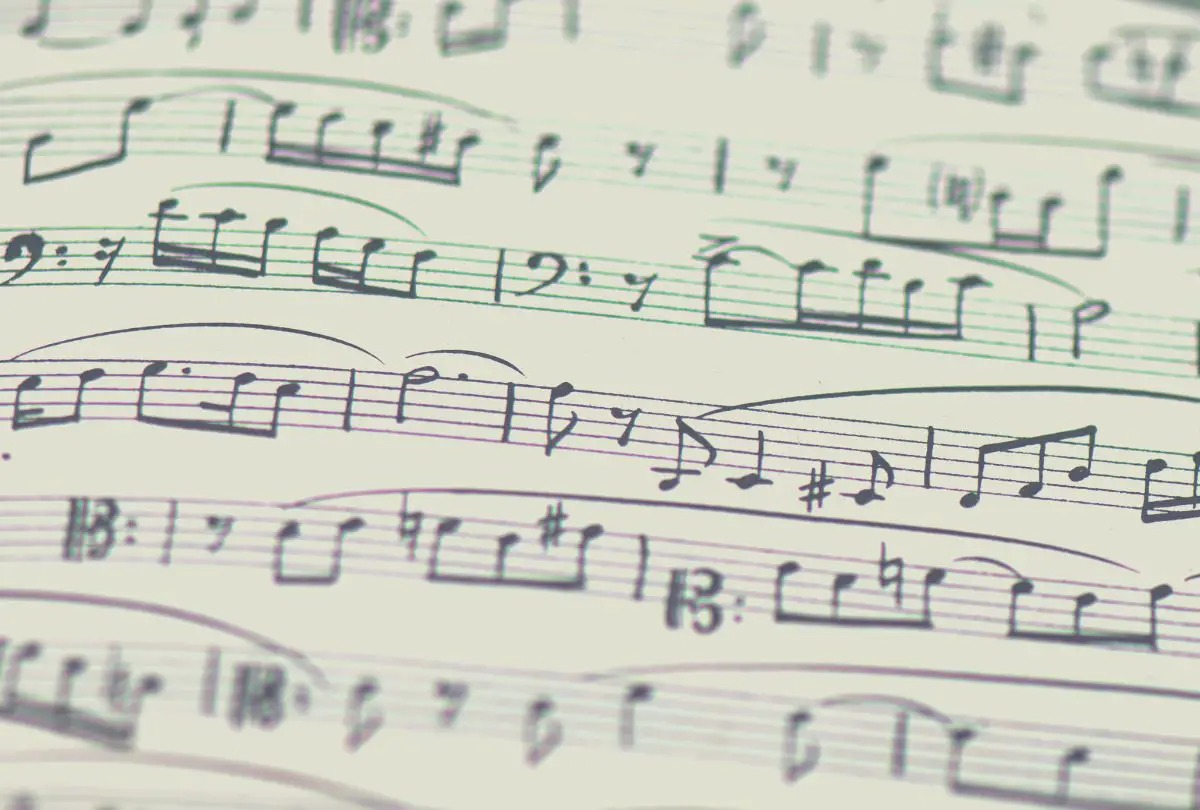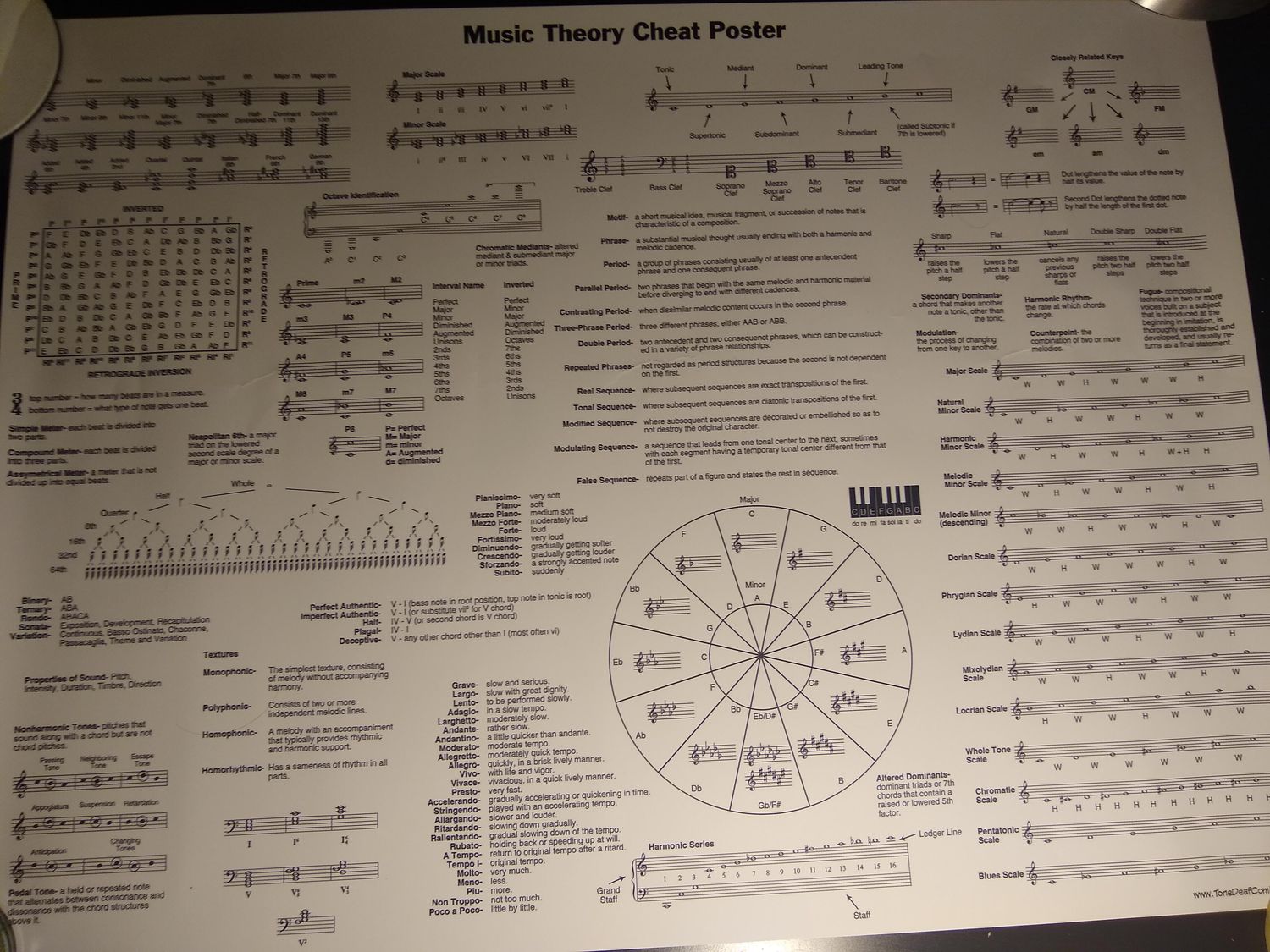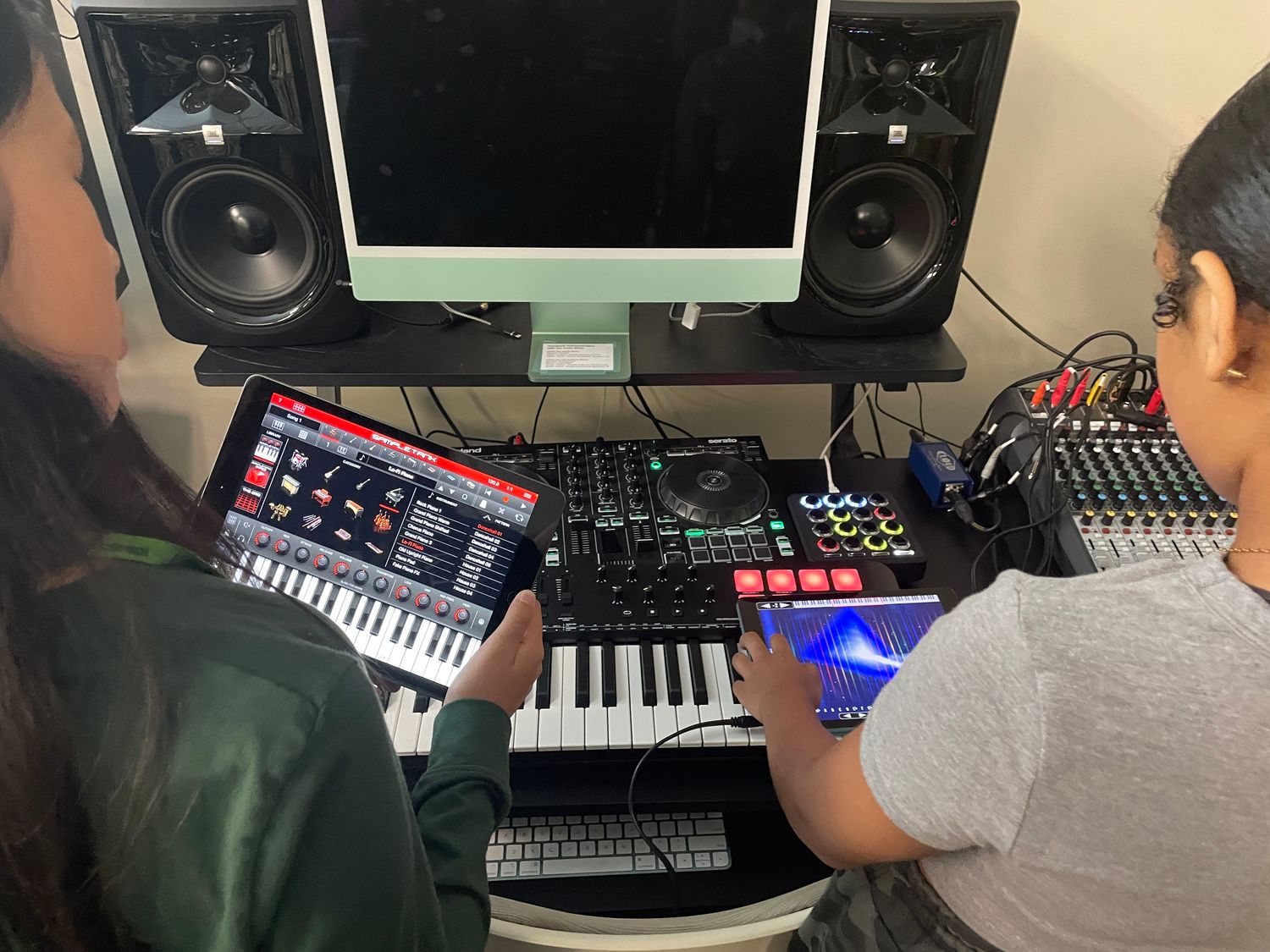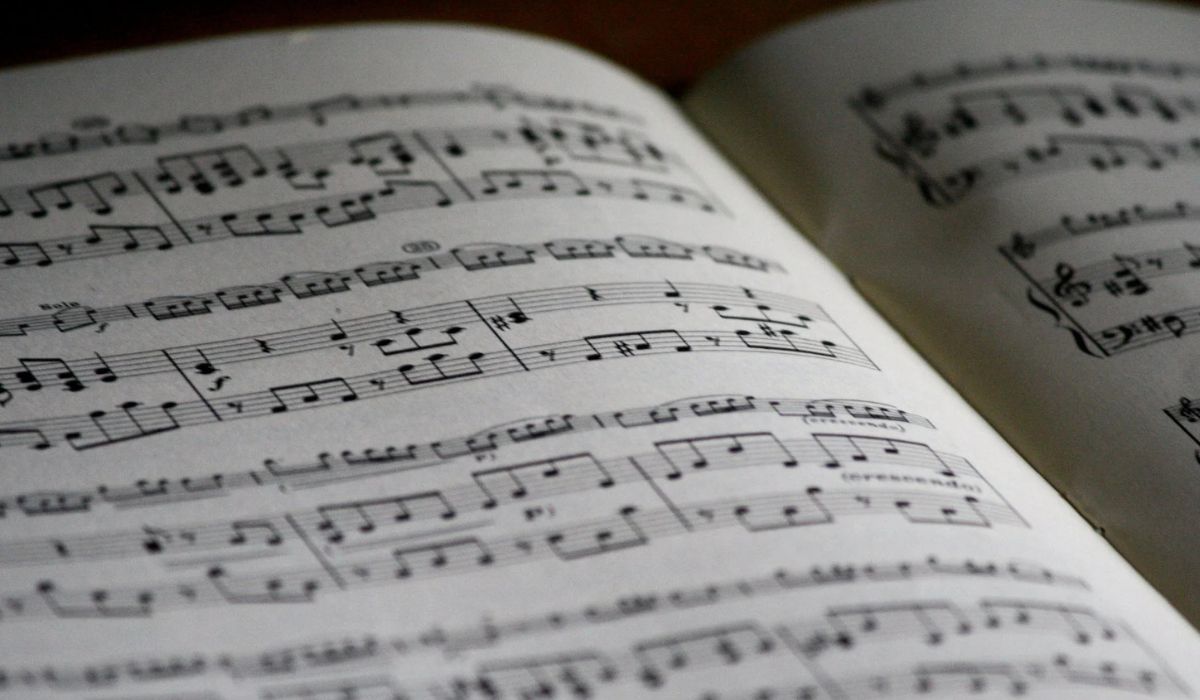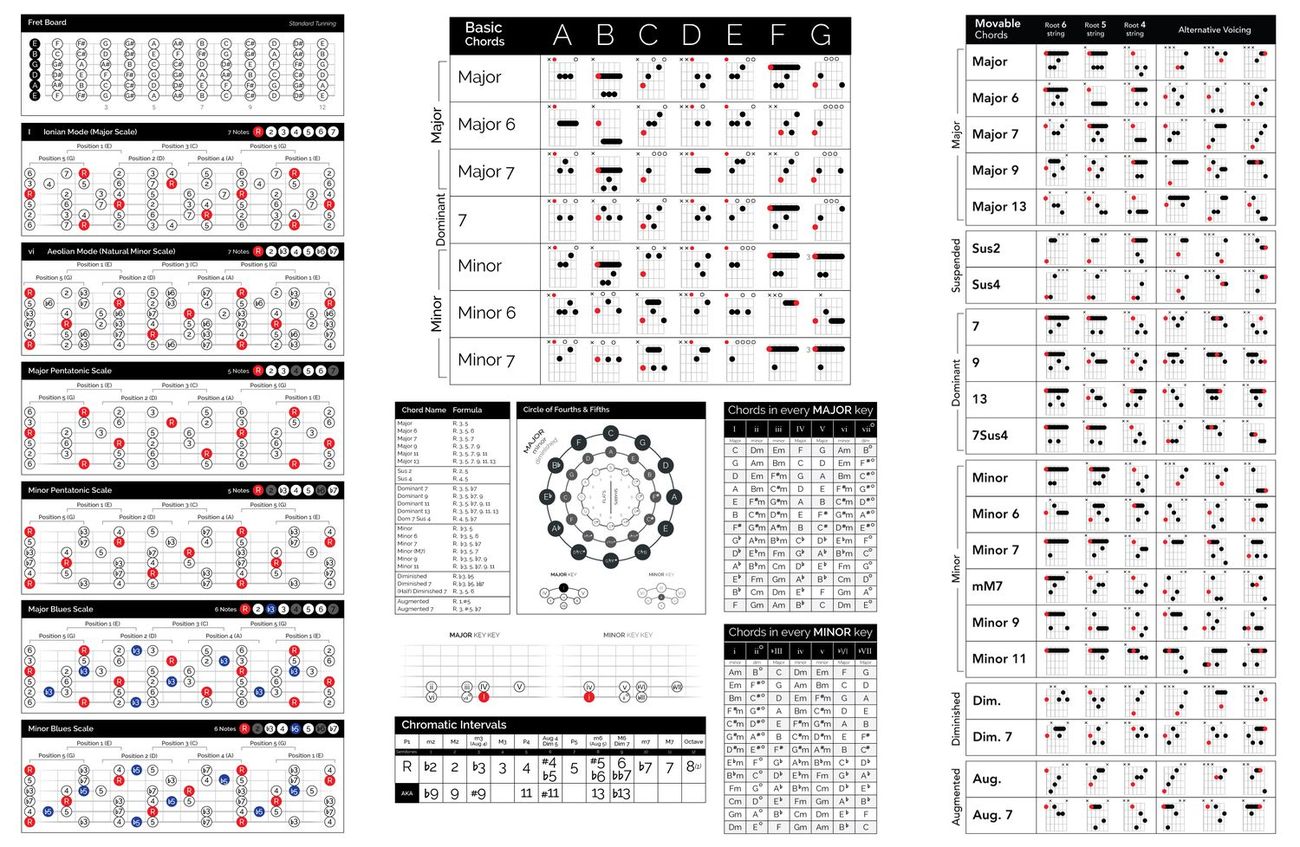Home>Production & Technology>Music Theory>Why You Should Learn Music Theory
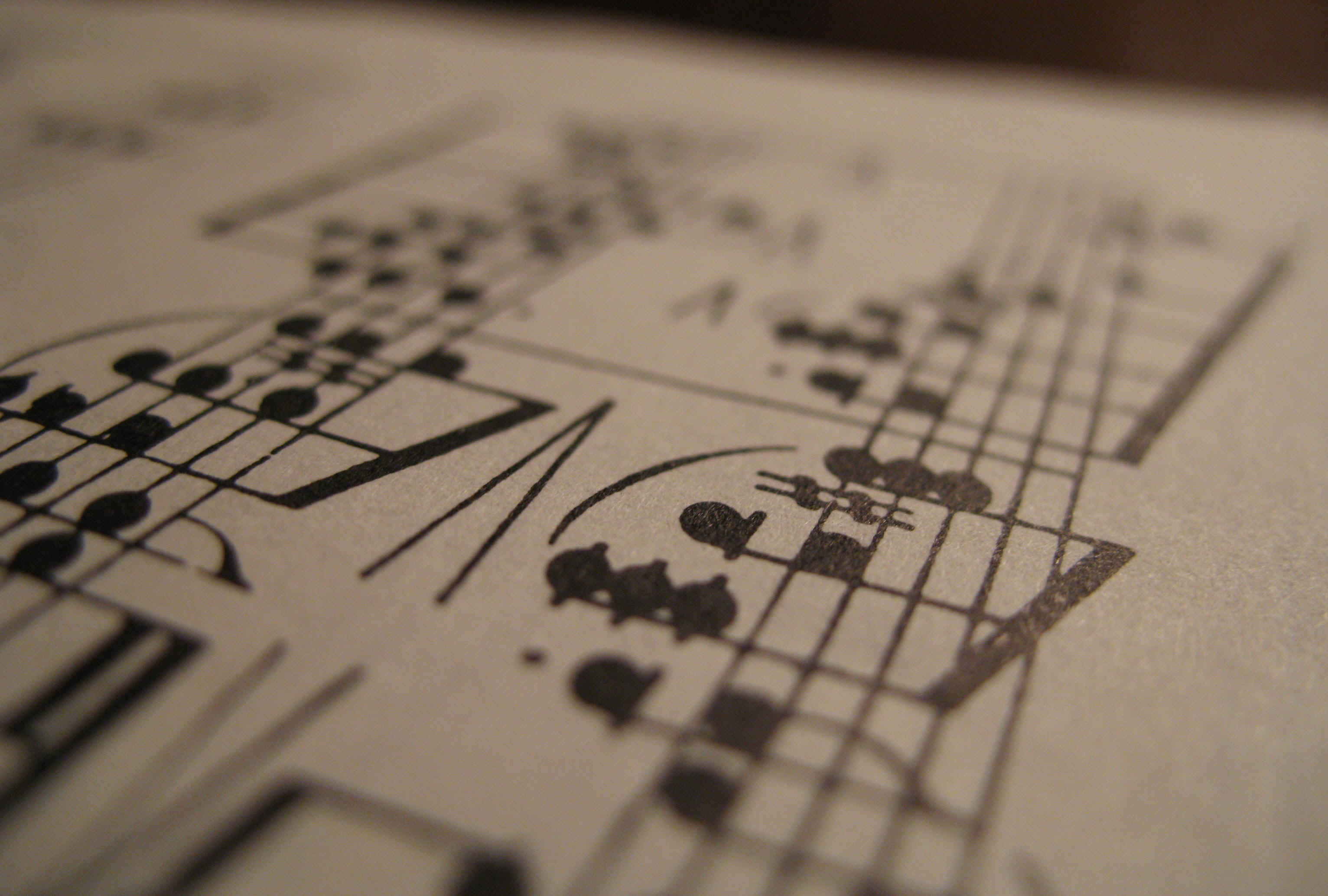

Music Theory
Why You Should Learn Music Theory
Published: January 30, 2024
Discover the importance of learning music theory and how it can enhance your musical skills. Uncover the secrets of music composition and gain a deeper understanding of musical concepts with comprehensive music theory lessons.
(Many of the links in this article redirect to a specific reviewed product. Your purchase of these products through affiliate links helps to generate commission for AudioLover.com, at no extra cost. Learn more)
Table of Contents
- Introduction
- Understanding the Basics of Music Theory
- Enhancing Musical Ability and Creativity through Music Theory
- Improving Music Interpretation and Performance
- Composing and Arranging Music with Music Theory
- Mastering Different Musical Styles with Music Theory
- Developing a Deeper Appreciation of Music through Music Theory
- Conclusion
Introduction
Music has the power to move us, to transport us to different emotions and experiences. Whether you are a musician or simply a music lover, understanding the principles behind music can significantly enhance your appreciation and enjoyment of it. This is where music theory comes into play.
Music theory is the study of the fundamental elements that make up music, such as rhythm, melody, harmony, and structure. It provides a framework for understanding how these elements work together to create the music we hear. While some may perceive music theory as complex and tedious, it is actually a fascinating and essential discipline that can revolutionize your understanding of music.
Learning music theory is not just for aspiring professional musicians or composers. It is for anyone who wants to deepen their understanding and connection with music on a deeper level. Whether you play a musical instrument, sing, or simply enjoy listening to music, music theory can enhance your overall musical experience in several ways.
In this article, we will explore the various benefits of learning music theory and how it can enhance your musical ability, interpretation, creativity, and appreciation. So, let’s dive in and discover why you should consider delving into the world of music theory.
Understanding the Basics of Music Theory
Before we delve into the benefits of learning music theory, it’s important to have a basic understanding of what it entails. Music theory encompasses a wide range of concepts and principles that form the foundation of music.
One of the fundamental aspects of music theory is rhythm. Rhythm refers to the arrangement of sounds and silences in music, creating a sense of time and pulse. Understanding rhythm enables you to play or sing in time and accurately interpret rhythmic patterns in music.
Melody is another essential element of music theory. It is the sequence of musical notes played or sung in succession, creating a recognizable tune. Learning about melodies helps you to recognize and appreciate the melodic structure of a piece of music.
Harmony is the study of how chords and notes are combined to create a pleasing sound. It involves understanding chord progressions, scales, and how different notes interact with each other. Understanding harmony allows you to analyze and interpret the harmonic aspects of a song or composition.
Structure is also a crucial element of music theory. It refers to the organization and arrangement of musical ideas within a piece of music. Learning about musical structure helps you to understand the form and shape of a composition, enabling you to anticipate and interpret musical developments.
By understanding the basics of music theory, you gain a deeper appreciation and comprehension of the music you encounter. It enables you to listen to music more analytically, picking up on the nuances and complexities that may have gone unnoticed before.
Moreover, having a solid foundation in music theory opens doors to further exploration and learning. It provides you with a framework to study and understand more advanced concepts in music theory, such as advanced harmonic progressions, modulation, counterpoint, and more.
Now that we have covered the basics of music theory, let’s explore how learning it can enhance your musical ability and creativity.
Enhancing Musical Ability and Creativity through Music Theory
Learning music theory can greatly enhance your musical ability and expand your creative horizons. By understanding the fundamental concepts of music theory, you can develop a deeper understanding of how music works and apply that knowledge to your own musical endeavors.
One of the primary ways that music theory enhances musical ability is by improving your ability to read and interpret sheet music. Sheet music is the written representation of music, and being able to read it allows you to play or sing a piece accurately. Understanding music theory helps you decipher the symbols, notations, and markings on the sheet music, enabling you to understand the rhythm, melody, and harmony of a composition.
Moreover, music theory provides you with the tools to analyze and understand the structure and form of a piece of music. This understanding allows you to better interpret the composer’s intended musical expressions and perform the piece with greater authenticity and emotion.
Music theory also enhances your ability to improvise and create music. By understanding how different chords, scales, and harmonies work together, you can experiment with creating your own musical ideas and compositions. It gives you the freedom to explore different musical possibilities and express your creativity more effectively.
Additionally, music theory equips you with a broader musical vocabulary. It introduces you to different musical concepts, techniques, and styles, providing you with a rich palette of musical ideas to draw from. This expanded musical knowledge allows you to incorporate diverse elements into your playing or composing, making your music more intricate and unique.
Furthermore, studying music theory encourages critical thinking and problem-solving skills. As you analyze and deconstruct different musical elements, you develop a deeper understanding of how they function together. This analytical mindset helps you solve musical challenges, such as identifying and resolving harmonic discrepancies or crafting a specific mood through musical choices.
At the same time, music theory nurtures your ear-training skills. By studying various musical intervals, scales, and chords, you develop a better ear for pitch and harmony. This heightened sense of musical perception allows you to identify and appreciate different musical elements in the music you listen to.
In summary, learning music theory not only enhances your musical abilities but also nurtures your creativity. It empowers you to read and interpret music accurately, analyze and understand musical structure, improvise and create your own music, and develop critical thinking and problem-solving skills. The benefits of music theory extend beyond the theoretical knowledge and into practical applications in your musical journey.
Improving Music Interpretation and Performance
One of the significant benefits of learning music theory is the improvement it brings to your music interpretation and performance. Music theory provides you with a deeper understanding of the underlying musical elements and their relationship, allowing you to bring greater depth and nuance to your interpretations.
With a solid understanding of music theory, you can more accurately interpret the composer’s intentions. You will have a clearer sense of how the various elements of a piece, such as melody, harmony, rhythm, and dynamics, work together to convey the desired musical expression. This understanding enables you to shape your performance in a way that conveys the intended emotions and musical ideas more effectively.
Additionally, music theory helps you to identify and interpret the expressive markings present in the sheet music. It allows you to understand the symbols and notations that indicate the desired dynamics, articulations, and phrasing. By following these markings with precision, you can bring more authenticity and clarity to your performances.
Furthermore, an understanding of music theory enhances your ability to incorporate musical nuances and stylistic elements into your performances. Different musical genres and time periods have their own distinctive characteristics, and music theory provides you with the knowledge to identify and authentically reproduce these elements. Whether it’s the ornamentation in Baroque music or the swing feel in jazz, your understanding of music theory allows you to capture the essence of each style and genre more convincingly.
Moreover, studying music theory enhances your technical proficiency as a performer. By understanding the underlying harmonic progression and structure of a piece, you can anticipate chord changes and transitions more accurately. This knowledge allows you to navigate through the music more smoothly and confidently, resulting in a more polished and precise performance.
Furthermore, music theory equips you with the skills to analyze and memorize complex musical passages more efficiently. By breaking down the music into its component parts and understanding how they relate to each other, you can better internalize the music and commit it to memory. This not only improves your overall performance but also frees up mental space, allowing you to focus on the artistic and expressive aspects of your playing.
In summary, learning music theory enhances your music interpretation and performance by providing a deeper understanding of the underlying elements and structure of the music. It allows you to more accurately interpret the composer’s intentions, incorporate expressive markings, and bring stylistic nuances to your performances. Moreover, music theory improves your technical proficiency and facilitates efficient analysis and memorization of music. As a result, your performances become more nuanced, expressive, and polished.
Composing and Arranging Music with Music Theory
Music theory plays a crucial role in the process of composing and arranging music. It provides the tools and knowledge necessary to create cohesive and compelling musical compositions.
When composing music, understanding music theory helps you craft melodies, harmonies, and rhythms that work together harmoniously. It gives you the ability to make informed choices about which notes to use, how to create interesting chord progressions, and how to establish a strong sense of musical structure. With this knowledge, you can create original compositions that are musically satisfying and coherent.
Moreover, music theory provides you with a framework to analyze existing compositions and understand the techniques used by accomplished composers. By studying the works of musical masters, you can gain insight into different compositional approaches and use that knowledge to inform your own compositions.
Arranging music involves taking an existing composition and reimagining it for a different set of instruments or voices. Understanding music theory is crucial for arranging because it allows you to consider the unique characteristics and capabilities of each instrument or voice. It helps you choose appropriate harmonies, counter-melodies, and textures that enhance the original piece and showcase the strengths of the performers.
Music theory also guides you in making decisions about orchestrations, dynamics, and other musical elements when arranging. It ensures that the arrangement maintains the essence of the original composition while incorporating new stylistic elements or instrumentation to create a fresh interpretation.
Furthermore, music theory assists in the process of developing variations and improvisations. By understanding harmonic progressions, scales, and melodic patterns, you can create variations of a theme or spontaneously improvise melodies and solos within a given musical context.
By studying music theory, you can also expand your repertoire of musical techniques and devices. Concepts such as modal interchange, modulation, and chromaticism can add complexity and richness to your compositions and arrangements. These techniques allow you to create musical surprises, add tension and release, and explore different tonalities.
Overall, music theory provides composers and arrangers with the necessary tools and knowledge to create compelling and innovative musical works. It guides the process of composing original pieces, arranges existing compositions for different contexts, assists in the development of variations and improvisations, and expands the creative palette with new techniques and devices.
Mastering Different Musical Styles with Music Theory
Music theory is a valuable tool for musicians looking to expand their repertoire and master different musical styles. Understanding music theory allows you to delve into the intricacies of various genres, providing insights into their unique characteristics and helping you navigate their specific conventions.
Each musical style has its own set of rules and elements that define its sound and feel. With a solid foundation in music theory, you can uncover these stylistic nuances and apply them to your performance or composition in a more authentic and convincing manner.
For example, if you’re interested in jazz, music theory will guide you through the complex chord progressions, improvisational techniques, and rhythmic subtleties that define the genre. Understanding jazz theory will allow you to analyze and interpret jazz standards, navigate through intricate chord changes, and improvise with confidence and creativity.
If classical music is your passion, music theory provides the groundwork for understanding the compositional techniques and forms prevalent in this genre. You can analyze symphonies, sonatas, and concertos, and gain insight into the harmonic progressions, contrapuntal writing, and stylistic conventions used by classical composers. This understanding will inform your interpretation and performance, helping you to capture the essence of the classical style.
Similarly, music theory is essential for mastering other genres such as rock, pop, blues, and folk. Each of these styles has distinctive characteristics that can be understood and internalized through music theory. You can analyze the chord progressions, melodic structures, and rhythmic patterns that define these genres, allowing you to play or compose in a way that is true to their respective styles.
Moreover, a solid understanding of music theory can enable you to explore and experiment with fusions of different musical styles. By blending elements from multiple genres, you can create innovative and unique compositions or arrangements that push the boundaries of traditional categorizations. This ability to cross genres is facilitated by your knowledge of music theory, which allows you to understand the underlying musical elements and how they can be combined harmoniously.
Learning music theory also provides the foundation for studying world music and traditional music from different cultures. It allows you to comprehend and appreciate the intricate rhythms, scales, and melodic structures that characterize various musical traditions. This understanding gives you the tools to authentically incorporate elements from different cultural and regional styles into your own compositions and performances.
In summary, music theory is invaluable for mastering different musical styles. It helps you uncover the unique characteristics, techniques, and conventions of each genre, enabling you to perform or compose in a way that is true to the style. Whether it’s jazz, classical, rock, or world music, a solid grounding in music theory provides you with the necessary knowledge and skills to navigate and excel in diverse musical landscapes.
Developing a Deeper Appreciation of Music through Music Theory
Music theory not only enhances our ability to perform and create music but also cultivates a deeper appreciation of the art form itself. By gaining a deeper understanding of the inner workings of music, we can unravel its complexities and discover the genius behind the compositions we love, leading to a richer and more profound musical experience.
One way that music theory deepens our appreciation of music is by revealing the underlying structure and logic within a piece. When we understand the principles of harmony, melody, rhythm, and form, we can follow along with the intricate interplay of these elements in a composition. This understanding allows us to appreciate the composer’s choices, the development of musical themes, and the overall architecture of the piece.
Additionally, music theory sheds light on the rich history and evolution of different musical styles and genres. By studying the origins and characteristics of various musical periods, such as the Baroque, Classical, and Romantic eras, we can gain a historical perspective on the music we encounter. This perspective allows us to recognize the unique contributions and innovations of different composers and appreciate the influences and context in which their music was created.
Furthermore, music theory enables us to identify and appreciate the intricate harmonies, chord progressions, and melodic structures that give music its distinct character. We can analyze the tension and resolution created through harmonic relationships, recognize recurring motifs and patterns, and discern the layers of complexity within a piece. This level of analysis heightens our listening experience as we become attuned to the nuances and subtleties that make each composition unique.
Music theory also deepens our understanding and appreciation of different musical instruments and their capabilities. By studying the range, timbre, and technical demands of various instruments, we can better appreciate the virtuosity of instrumental performances. Understanding the melodic and harmonic possibilities of each instrument allows us to recognize the artistry involved in their interpretation and the synergy created when multiple instruments come together.
Moreover, music theory enhances our ability to listen actively and critically. As we develop our ear-training skills through studying intervals, scales, and chords, we can discern different musical elements and identify their impact on the overall composition. This active listening allows us to engage more deeply with the music, becoming attuned to the nuances of rhythm, dynamics, and expression that contribute to the emotional power of a performance.
Ultimately, music theory broadens our perspective and deepens our appreciation of music by revealing its inner workings and providing us with the tools to analyze and interpret what we hear. Whether we are listening to a symphony, a jazz improvisation, or a pop song, our knowledge of music theory allows us to engage with the music on a deeper level, unlocking the intricacies and beauty that lie beneath the surface.
Conclusion
In conclusion, learning music theory is a valuable endeavor for musicians, music lovers, and anyone seeking a deeper understanding and appreciation of music. By studying the fundamental elements of rhythm, melody, harmony, and structure, music theory provides a framework for understanding how music works and enhances our musical abilities in various ways.
Through understanding the basics of music theory, we gain a deeper appreciation of the music we encounter. It allows us to listen more analytically, discerning the nuances and complexities that may have gone unnoticed before. Moreover, music theory equips us with the tools to read and interpret sheet music accurately, analyze and understand musical structures, and recognize expressive markings in performances.
Furthermore, studying music theory enhances our musical ability and creativity. It improves our technical proficiency, facilitates improvisation, and expands our musical vocabulary. The knowledge and skills acquired through music theory empower us to compose and arrange music, allowing us to express our artistic ideas and create original works.
Moreover, music theory opens doors to mastering different musical styles. It enables us to understand the unique characteristics and conventions of various genres, facilitating authentic interpretation and performance. Additionally, music theory provides the foundation for exploring and fusing different musical styles, pushing the boundaries of creativity and innovation.
Lastly, learning music theory deepens our appreciation of music itself. By uncovering the inner workings and logic behind compositions, recognizing historical contexts and influences, and analyzing the intricacies of melody and harmony, music theory enriches our listening experience. It allows us to engage with music on a more profound level, unlocking its beauty and emotional depth.
In summary, music theory is not merely an academic pursuit but an essential tool for musicians and music enthusiasts. Its benefits extend beyond theoretical knowledge, enhancing our musical ability, interpretive skills, creativity, and appreciation. By delving into the world of music theory, we open ourselves to a deeper understanding, connection, and enjoyment of the transformative power of music.

